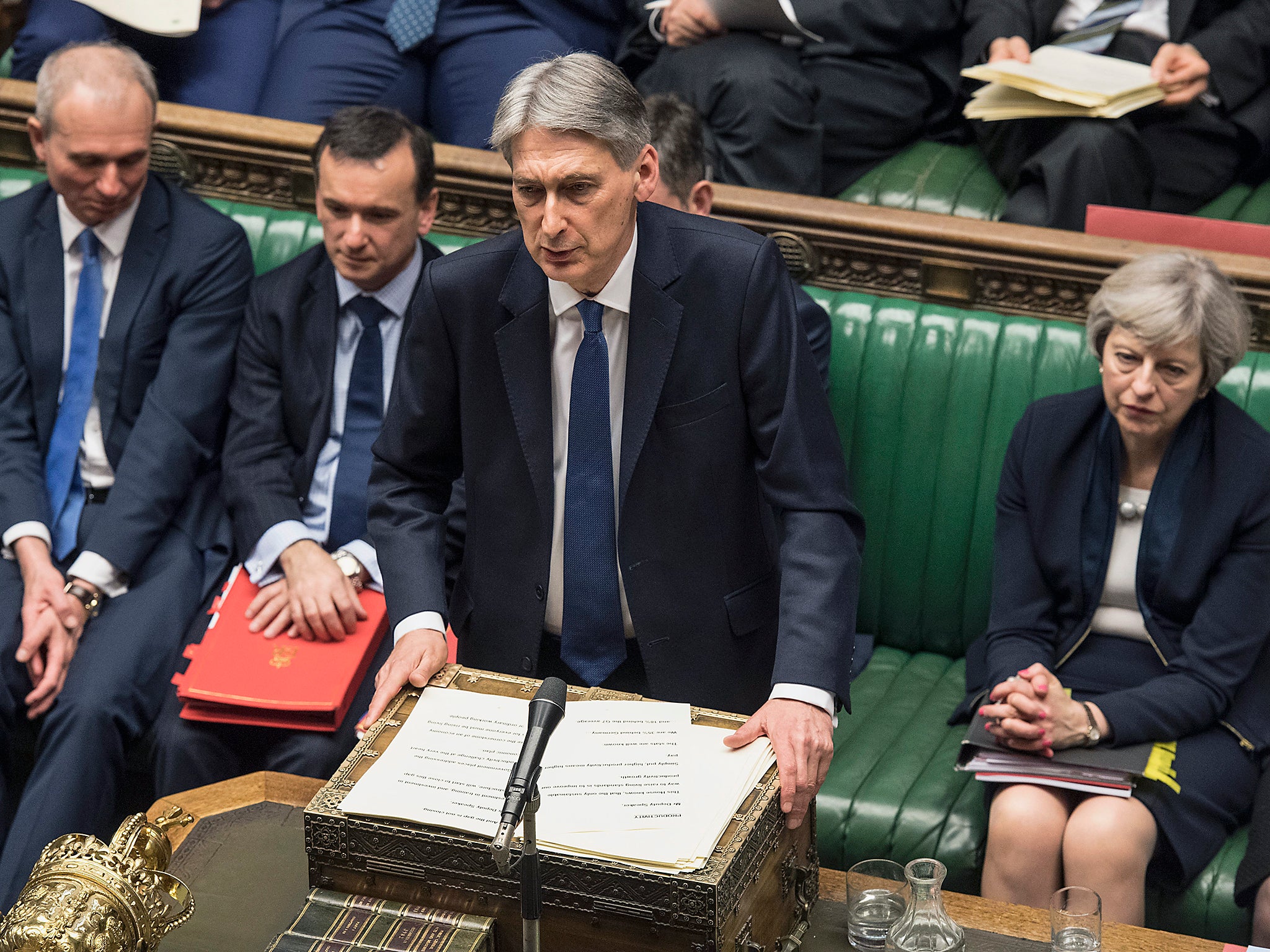Budget 2017: Philip Hammond breaks Tory manifesto promise not to raise National Insurance contributions
Chancellor hikes taxes for the self-employed

The Chancellor has broken the Conservatives’ manifesto pledge not to raise National Insurance contributions after increasing the headline rate of the tax for some workers in his Budget.
Independent white van traders and freelancers are likely to be worst hit by the policy, which will raise the tax rate twice in the next two years ahead of Brexit.
The 2015 Conservative election manifesto repeatedly pledged that “we will not raise VAT, National Insurance contributions or Income Tax” .
On another page the document stated that “we can commit to no increases in VAT, Income Tax or National Insurance. Tax rises on working people would harm our economy, reduce living standards and cost jobs”.
At the time Labour described the pledge as a “last-minute gimmick”.
In the Chancellor’s speech on Wednesday afternoon Mr Hammond however targeted self-employed workers with a hike in the rate of NI contributions. Self-employed workers will see their rate rise from 9 per cent to 10 per cent in 2018, with a further rise to 11 per cent in 2019

Treasury officials say 2.5 million people will be hit by £240 a year by the NICS class 4 change. The number of people seeing a NICS rise in April 2018 when it comes in will fall to 1.6 million because of the move to abolish class 2 NICS previously announced JIC.
He justified the policy on the basis that differences in benefits between employees and self-employed workers “have been very substantially reduced” in recent years.
A Labour spokesperson said: "It is clear the Tories have broken their manifesto promise in order to hit low and middle earners with the sole-trader tax while continuing with tax giveaways for the super rich and corporations."
A Government spokesperson tried to defend the policy by arguing that the Government remained committed to its manifesto pledges and that detail of the NICs rise had been set out in legislation after the election.
Speaking after the Budget announcement David Gauke, the chief secretary to the Treasury, defended the decision to break the manifesto promise.
“I think we have got a situation where we’ve closed the gap in terms of benefits entitlements, effectively eliminated it, that we have got a growing situation with the costs and the sense that if we don’t take action … we are placing an unfair burden on the 85 per cent of employees,” he told after BBC News.
“I think if you look at our record as a Government over the course of this period in time you’ll see it is a record where we are cutting direct taxes … that when it comes to those direct taxes we are not looking for more, but there is a very specific case and the more we look at this the more we can see there is a problem that is going to build up if we don’t take action on this.”

Join our commenting forum
Join thought-provoking conversations, follow other Independent readers and see their replies
Comments
Bookmark popover
Removed from bookmarks